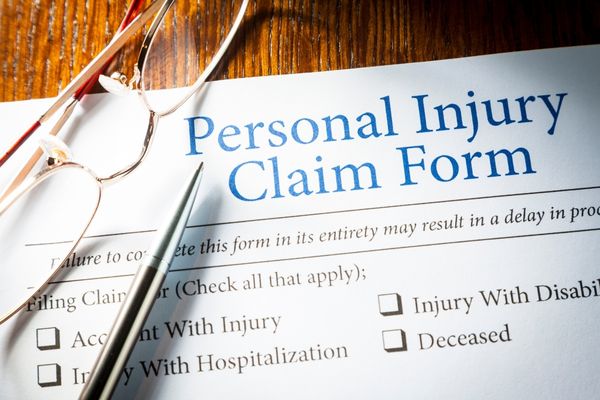
People often shy away from filing a personal injury case due to several reasons. It may be because of myths surrounding personal injury cases, fear, or wanting to avoid the hassle of a potentially complex case.
Due to this, the affected individuals end up losing out on compensations or damage claims which they would be entitled to. Gaining compensation in a personal injury case isn’t a favor, but a right that everyone should exercise if they are involved in an unfair accident that harmed them personally and interfered with their quality of life.
However, before moving further with your personal injury case, it is important to know what happens in a personal injury case, and what types of compensation to seek in a personal injury lawsuit.
Types of Personal Injury Cases
Car Accident Compensation
Car accidents are one of the most common types of personal injury claims and lawsuits that take place in the United States. These accidents usually happen when drivers don’t pay attention or follow traffic regulations.
The most common outcome for such cases is the fact that the driver who is at the fault for causing the accident usually ends up paying for the injuries and losses caused by the accident. Most of these get settled through the insurance process.
Slip and Fall Compensation
A slip and fall case or a premises liability case is another type of personal injury lawsuit that is quite common. In such cases, the property owners are subject to scrutiny as they are expected to keep their homes and premises safe. The injured person can sue the property owners for damages.
Product Liability Compensation
This includes people who are injured by a defective or unreasonably dangerous product and can sue the manufacturer or the seller in a liability claim.
Intentional Compensation
Most personal injury claims involve accidents, but one can also sue another person if they end up intentionally harming them.
Types of Compensations to Seek in a Personal Injury Case
Compensatory Damages
Compensatory damages aim to reimburse the victim for the costs associated with the injury they have succumbed. These are also called ‘economic damages’ and include quantifiable, out-of-pocket expenses. So these damages mainly focus on giving the amount that the victim spent or the loss they had to face while they were not able to work.
They are further divided into special compensatory damages, general compensatory damages, and wrongful death damages.
Special compensatory damages include medical expenses from the past and future, expenses pertaining to damage to property, lost wages, loss of irreplaceable items, and expenses related to trips.
Similarly, general compensatory damages include expenses like pain and suffering, lower quality of life, inconvenience, physical disfigurement, or loss of companionship.
Another type of compensatory damage that can be claimed includes wrongful death damages. These usually compensate for things like funeral and burial expenses, emotional distress, loss of income of the deceased person, loss of consortium, and value of the services that the deceased person should’ve provided.
Punitive Damages
Punitive damages aim to punish the party responsible for causing harm to the other party. These kinds of damages focus on the degree of punishment to the person who is responsible for the injury or wrongful death of a loved one.
However, in cases where the court feels that the damages received by the victim aren’t enough, and might not deter the responsible party from committing the crime again they will go again and offer the same punitive damages to the victim.
If the responsible party is particularly wealthy, the courts might want to increase the element of punitive damages to create an example out of them.
How To Collect Personal Injury Damages
Once the trial has been over and the decision states that the victim is supposed to receive a specific amount in damages. However, the process of receiving a predetermined amount can be made much easier if both parties agree to a pre-trial settlement. On the other hand, collecting damages can get a little complex post a trial.
After reaching the settlement, a release is signed and the settlement check is received.
In the case of receiving a court award after a trial, the part which involves collecting the money gets more complicated. There can be scenarios where the defendant might not want to or are not able to pay. A personal injury lawyer can be of help in such cases.
Conclusion: Get a Personal Injury Lawyer Today
Going and filing a personal injury case is imperative if the victim has been harmed in the incident. Getting in touch with a personal injury lawyer is clearly the right move here.
Filing a personal injury case can be quite overwhelming for someone who’s going through a personal loss or physical/mental injury. When a victim has suffered a personal injury the pain isn’t just physical. It takes a toll on the affected person’s emotional, financial, and mental health as well.
In such cases, again, it is often suggested to hire a personal injury lawyer as soon as possible. For all the right reasons, a personal injury lawyer shall be brought on board right after the incident. With their expertise and assistance, victims can be stress-free and not worry about their future.
We offer personal injury services including:
Baltimore car accident
Baltimore truck accident
Baltimore motorcycle accident
-
In every case, we work directly with clients from the beginning to the end of a case. We hear about many lawyers who take the money and their client interaction doesn’t take priority. We know that an ideal outcome must come from collaboration with our clients. This approach ensures that everybody gets a fair deal – that our clients are never run over by what can be an unfair system. If you have been charged or are being investigated, it is absolutely crucial to begin defending as soon as possible. We encourage you to get in touch.
Get Your Free Consult

